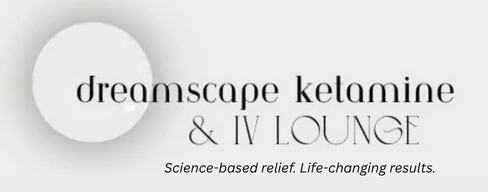Here are some important questions to ask when searching for a ketamine clinic to ensure patient safety and quality care:
1. What type of staff administers and monitors the patients?
Understanding who will be directly involved in your care is critical. Ask whether the clinic employs trained medical professionals, such as anesthesiologists, psychiatrists, or registered nurses, to administer the ketamine.
2. How are patients monitored during and after treatment?
Ask if the clinic monitors vital signs such as blood pressure, respiratory rate, heart rate, and oxygen levels throughout the treatment. Continuous monitoring of these key parameters ensures patient safety during the infusion.
3. Is the doctor readily available to answer questions and modify the plan of care if needed?
Ensure the clinic provides easy access to a doctor who can address concerns and adjust the treatment plan as necessary during the course of therapy.
4. Do they have a crash cart for emergencies?
Ask if the clinic is equipped to handle emergencies, including the availability of a crash cart with emergency medications and equipment in case of an adverse reaction.
5. Are the staff members ACLS certified?
Advanced Cardiovascular Life Support (ACLS) certification ensures that staff are trained to handle potential cardiac or respiratory emergencies, adding an extra layer of safety.
6. What type of RN is monitoring the patients?
Inquire about the qualifications and experience of the registered nurses overseeing your treatment, particularly if they have experience in critical care or psychiatric care.
These questions will help you evaluate the safety standards and quality of care at any ketamine clinic you consider.
Ketamine therapy has become a powerful tool in the treatment of depression, PTSD, anxiety, and chronic pain, transforming the lives of countless individuals. While it has helped many find relief, recent media attention surrounding the misuse of ketamine outside of clinical settings has raised concerns. It’s important to understand that, when administered by trained medical professionals in appropriate doses, ketamine is a safe and effective treatment. Cases of ketamine misuse highlight the essential need for its responsible administration under professional supervision.
The Therapeutic Benefits of Ketamine
Ketamine has a long history of medical use, primarily as an anesthetic, and over the past two decades, it has gained recognition for its ability to rapidly alleviate symptoms of treatment-resistant depression, anxiety, and PTSD. Unlike traditional antidepressants, which can take weeks to become effective, ketamine can offer relief in as little as one or two treatments. Many patients who have tried other treatments with little success have found renewed hope through ketamine therapy.
The Safety of Ketamine Therapy Under Medical Supervision
When administered in controlled, low doses in a clinical setting, ketamine is remarkably safe. Clinics that specialize in ketamine therapy are staffed by trained professionals who monitor patients closely before, during, and after each treatment. This supervision ensures that potential side effects, such as dissociation or mild blood pressure changes, are managed effectively, minimizing any risks. The key to safety is the controlled environment in which ketamine is administered, where the dose is carefully calculated for therapeutic benefits without causing the negative effects that happens with higher dosing.
While any drug carries a risk of misuse, ketamine has a relatively low potential for addiction. However, those with significant financial means may find it easier to access the drug. It’s important to distinguish between recreational, illicit use—often involving unregulated, higher doses—and the medically supervised, controlled use of ketamine in therapeutic settings. Misuse in unauthorized environments can lead to serious health risks, but when administered responsibly under professional care, ketamine therapy maintains a strong safety and efficacy record.
The Importance of Medical Supervision
The majority of ketamine-related adverse events reported in clinical settings have been mild and transient, such as nausea, dizziness, and dissociation. Serious incidents,
including psychosis or other long-term cognitive effects, have been rare but are typically associated with high or improperly managed doses (BioMed Central) (Health News Florida) . Importantly, most adverse outcomes occur when ketamine is used without proper medical oversight, highlighting the need for trained professionals and strict adherence to safety protocols (JAA) .
Licensed healthcare providers not only administer the treatment but also evaluate patients for candidacy and ensure their overall health is monitored throughout the process. Comprehensive health assessments before treatment begins, careful dosage controls during sessions, and ongoing monitoring after treatments are essential components of a safe and effective therapy plan.
Moving Forward: Building Trust in Ketamine Therapy
The misuse of ketamine in any context is a serious concern, but it is crucial not to conflate illegal or irresponsible actions with the safe, controlled use of ketamine in a medical setting. For individuals considering ketamine therapy, the most important step is to ensure that treatment is provided by experienced, licensed medical professionals who are dedicated to patient safety.
Ketamine therapy has the potential to be life-changing for those struggling with mental health conditions, but only when administered responsibly. Clinics that follow proper protocols and put patient safety first allow individuals to experience the transformative benefits of ketamine while minimizing risks.
Ketamine therapy is a safe and effective treatment for many individuals when administered responsibly in a clinical setting. While misuse in unauthorized settings can lead to harm, the overwhelming evidence supports the safety of ketamine when used by licensed professionals. Patients considering ketamine therapy should seek out clinics that follow strict medical protocols and prioritize patient safety.
If you or someone you know is struggling with treatment-resistant depression, anxiety, or PTSD, ketamine therapy could offer hope. Ensure that your treatment is provided by a trusted, licensed clinic with a commitment to the highest standards of care.
